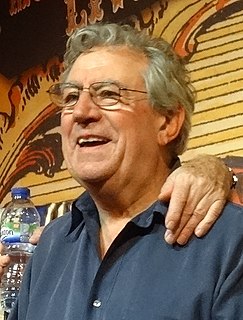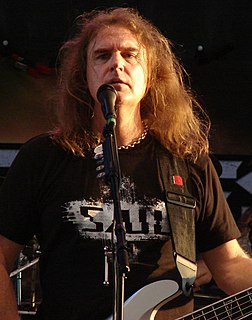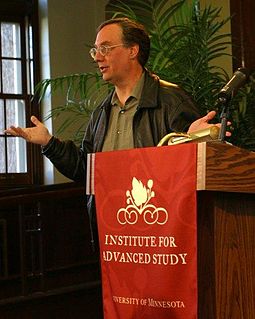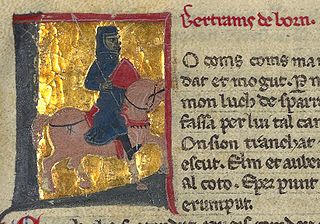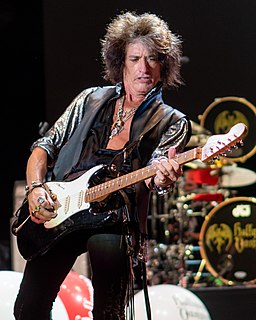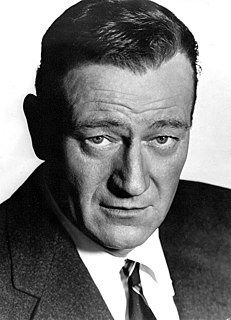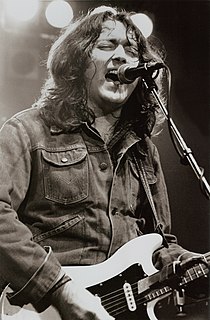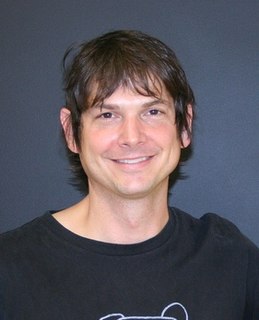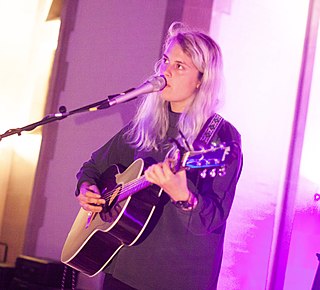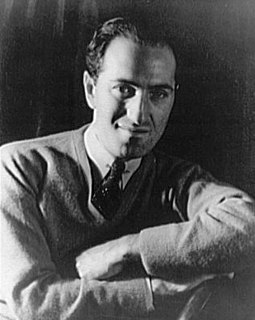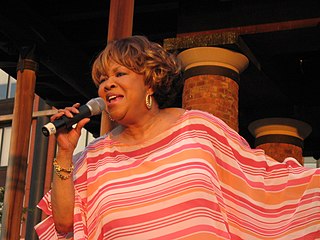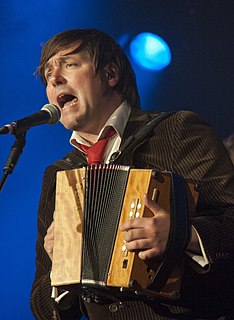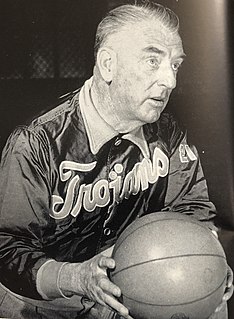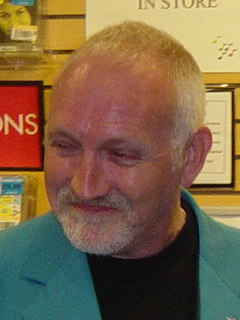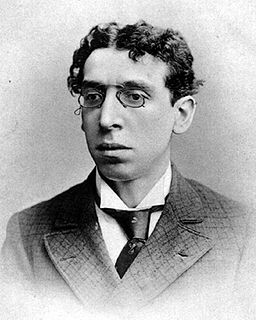Top 1180 Folk Quotes & Sayings - Page 18
Explore popular Folk quotes.
Last updated on November 14, 2024.
In the days when the spinning wheels hummed busily in the farmhouses--and even great ladies, clothed in silk and thread lace, had their toy spinning wheels of polished oak--there might be seen, in districts far away among the lanes, or deep in the bosom of the hills, certain palled undersized men who, by the side of the brawny country-folk, looked like the remnants of a disinherited race.
These are the folk who may pass into the kingdom of heaven: the grief-stricken, lovers, scholars of a certain obsessive disposition. Brute beasts. Women who have become as men and men who have become as women. Writers of books with long titles. Only those knights who have failed to touch the Grail. Industrious women. You, and I, and a boy named Oleg, and a girl with blue hair.
I am gay on the outside, especially among my own folk (I count Poles my own); but inside something gnaws at me; some presentiment, anxiety, dreams - or sleeplessness - melancholy, indifference - desire for life, and the next instant, desire for death; some kind of sweet peace, some kind of numbness, absent-mindedness.
We've seen senators like Ted Cruz before. The historical comparison most commonly invoked involves Joe McCarthy, whose scurrilous red-baiting crusade in the early 1950s shattered the careers of innocent public servants and alienated McCarthy from his fellow senators, but also made him a folk hero on the right. Jesse Helms comes to mind too.
Marya Morevna, we are better at this than you are. We can hold two terrible ideas at once in our hearts. Never have your folk delighted us more, been more like family. For a devil, hypocrisy is a parlour game, like charades. Such fun, and when the evening is done we shall be holding our bellies to keep from dying of laughter.
Why do I feel so exercised about what we think of the people of the Middle Ages? ... I guess it's because so many of their voices are ringing vibrantly in my ears - Chaucer's, Boccaccio's, Henry Knighton's, Thomas Walsingham's. Froissart's, Jean Creton's... writers and contemporary historians of the period who seem to me just as individual, just as alive as we are today. We need to get to know these folk better in order to know who we are ourselves.
When folk have set before them a true purpose and then pursue it unmoved with bravery and courage, when they withstand with a strong heart every trial which Heaven sends upon them, then one day at the last Almighty Providence will yet grant them the fruits of their struggle and of their sacrifices. For God has never abandoned any man upon this earth unless he has first abandoned himself.
And how we become like our parents! How their scorned advice - based, we felt in our superiority, on prejudices and muddled folk wisdom - how their opinions are subsequently borne out by our own discoveries and sense of the world, one after one. And as this happens, we realise with increasing horror that proposition which we would never have entertained before: our mothers were right!
Then about 12 years ago it dawned on me that folk music - the music of Woody Guthrie and Phil Ochs, early Bob Dylan, Johnny Cash, Pete Seeger - could be as heavy as anything that comes through a Marshall stack. The combination of three chords and the right lyrical couplet can be as heavy as anything in the Metallica catalogue.
The old model of the industry was founded largely upon business folk trying to make money off artists. At EMP, we let the music make the money, not the other way around. We have flipped the model to make the artistry be at the forefront of everything we do. Music makes the business and that's what makes it work.
When I was young, my mother [folk singer Kate McGarrigle] brought home this recording of Verdi's Requiem and we listened to it from top to bottom. By the end of it, I was a completely different person. It was literally a requiem mass for my former self. I was about 12 or 13. The Requiem just totally hooked into what I was going through emotionally - discovering my sexuality right at the time when AIDS was devastating my community and dealing with intense parental situations.
One of the songs that stayed in my head that I really considered a lot was an old folk song called 'John Brown' - not the abolitionist John Brown, but the one that Bob Dylan has covered and sung before. It's about a boy coming home from the Civil War, or maybe World War I even, and about his Mother seeing him all destroyed.
He’s being held prisoner on a ceramic-lined cookie sheet in the oven,” Thomas said. “I figured he couldn’t jigger his way out of a bunch of steel, and it would give him something to think about before we start asking questions.” “That’s an awful thing to do to one of the Little Folk, man,” I said. “I’m planning to start making a pie in front of him.” “Nice.” “Thank you.
If we think about folk forms, they belong to disenfranchised people, people who have not been allowed access to the poetry of literature or the leisure time that comes with the pursuit of poetry. Instead, this is ceremony. This is a highly charged way to create a sacred space that isn't necessarily about God, but is about human experience at its most profound levels - whether that's love or grief, separation, or homeland. All are altered states.
For me, let's keep jazz as folk music. Let's not make jazz classical music. Let's keep it as street music, as people's everyday-life music. Let's see jazz musicians continue to use the materials, the tools, the spirit of the actual time that they're living in, as what they build their lives as musicians around.
Honestly, I've been reading a lot of books on visual art. I've been reading a lot of books by Olivia Lang, I've been listening to a lot of folk and singer-songwriter music, but also a lot of electronic and really hard techno. I'm just trying to create something that pulls from everywhere and that hopefully feels unique.
it pleaseth me when I see through the meadows
The tents and pavilions set up, and great joy have I
When I see o'er the campana knights armed and horses arrayed.
And it pleaseth me when the scouts set in flight the folk with
their goods;
And it pleaseth me when I see coming together after them an host of
armed men.
My Portuguese uncle had a Portuguese version of a ukulele. The family would pull it out after dinner and play Portuguese folk songs on it. I couldn't wait for him to finish so I could get my hands on it. I was seven or eight years old. And he used to have a Fender amp in his house and an electric guitar. I would spend hours making sounds.
When you set out to carry on a tradition as deep rooted as folk music is, you've got to have your story together. You've got to study and have a foundation. Jeffrey Foucault has that foundation, and you can hear it in his voice, and feel it in his music. He's got an understanding that you don't hear that often.
You can not ignore his current life. Bowie has become a family man and enjoys to see his children grow up close to him. But after six years he feels the urge to get in the studio with musicans he likes. He closely follows bands like Arcade Fire in recent months. But he is inspired by ancient Chinese folk and jazz these days as well.
I see what I want of Love... I see horses making the meadow dance, fifty guitars sighing, and a swarm of bees suckling the wild berries, and I close my eyes until I see our shadow behind this dispossessed place... I see what I want of people: their desire to long for anything, their lateness in getting to work and their hurry to return to their folk... and their need to say: Good Morning.
Every country in the world loved the folklore of the West--the music, the dress, the excitement, everything that was associated with the opening of a new territory. It took everybody out of their own little world. The cowboy lasted a hundred years, created more songs and prose and poetry than any other folk figure. The closest thing was the Japanese samurai. Now, I wonder who'll continue it.
The first songs I learned were 'It Takes a Worried Man' and Woody Guthrie's 'Grand Coulee Dam,' 'Rock Island Line' - those kind of American folk songs that were probably on the edge of blues. After that was Eddie Cochran and Chuck Berry songs. And then I heard Muddy Waters, Jimmy Reed and Big Bill Broonzy on the radio.
Some of the old folk singers used to phrase things in an interesting way, and then, I got my style from seeing a lot of outdoor-type poets, who would recite their poetry. When you don't have a guitar, you recite things differently, and there used to be quite a few poets in the jazz clubs, who would recite with a different type of attitude.
I've always been scared of advertising folk. I've met them at parties and I've been to their offices and I've always found them intimidatingly cool. At one company I visited, they held their meetings in a caravan that had somehow been installed in the place, a rather more exotic place to gather than the typical BBC glass box.
As a Black woman filmmaker I feel that’s my job: visibility. And my preference within that job is Black subjectivity. Meaning I’m interested in the lives of Black folk as the subject. Not the predicate, not the tangent.[These stories] deserve to be told. Not as sociology, not as spectacle, not as a singular event that happens every so often, but regularly and purposefully as truth and as art on an ongoing basis, as do the stories of all the women you love.
I've noticed the Fair Folk often say 'perhaps' when there is a truth they want to hide," Clary said. "It keeps you from having to give a straight answer." "Perhaps so," said the Queen with an amused smile. "'Mayhap' is a good word too," Alec suggested. "Also 'perchance,'" Izzy said. "I see nothing wrong with 'maybe'," said Simon. "A little modern, but the gist of the idea comes across.
For me, reggae music and its aesthetic are touchstones in both simple and complex ways. Reggae's capacity to be a folk music that is created in a wholly modern context of the recording studio (and sometimes that is the sole performance space) is riddled with the kinds of contradictory impulses that we have come to expect from the post-modern. I revel in this, for it gives me, shall I say, permission.
I find a difference between what gets called world music - a fusion of western music and music from different cultures in more of a modernized version - and Explorer Series stuff, which is completely undiluted indigenous folk music. That's a lot more powerful than a lot of the super-processed stuff that comes out now.
Just because you're a solo artist playing guitar, that doesn't make it folk. People get a bit confused about these things. There's so many more aspects to my music than that. Earlier on in my career, people tried to push me in that direction. They kind of wanted me to be a folky princess, which was just never gonna happen. I don't understand quite why it is, but it is very irritating that it's still happening.
Nothing so evil as money ever grew to be current among men. This lays cities low, this drives men from their homes, this trains and warps honest souls till they set themselves to works of shame; this still teaches folk to practise villainies, and to know every godless deed. But all the men who wrought this thing for hire have made it sure that, soon or late, they shall pay the price.
The kind of approach I take is different from much of experimental philosophy. Although the experimental philosophers and I are certainly in agreement about the relevance of empirical work to philosophy, a good deal of their work is devoted to understanding features of our folk concepts, and in this respect, at least, I see them as making the same mistake as those armchair philosophers who are interested in conceptual analysis.
The emphasis on personal responsibility is something we've had in black America from the get-go. Every major leader and intellectual worth her salt has advocated for black folk to better ourselves and push ourselves to the limits of our abilities and gifts. At the same time, we've got to focus on creating a society that recognizes our worth, regardless of race and other factors.
I was in college, but I got kicked out. It was a very free school, but I created a "bad impression." Like I was a bit more fiery in those days. At the time I got kicked out, I knew exactly what I was going to do and didn't even bother to go back for a leaving certificate. Then I was singing in folk clubs around Birmingham and playing jazz in clubs on Sundays.
That's the thing about a folk tale: It is always addressing incredibly key issues about how you should live and what the right thing to do is, which is really what I'm the most interested in - like the questions that religion takes on. And I think that, for those of us that aren't religious, we need, or I need, art that stimulates the same kind of thinking about what it is to be a mensch, or a good man, things like that.
What I see here, what I feel here is that people in your world believe spirituality isn't distant. It's close and real. Religion seems born in the home, stays in the home. I mean, the services are even held in the home. And there's not one person in charge, one speaker set above the others. It's farmers and carpenters, and well, just average folk speaking spontaneously about the message they find in the Bible. [...] A message from the heart to the heart.
My aunt Geraldine was the unofficial historian and storyteller. She had all the information about family members and the gossip that came out of the church because we were very much part of the African Methodist Episcopal Zion Church. At family gatherings, the older folk had the floor, had pride of place, and it was their stories I remember.
Gershwin's melodic gift was phenomenal. His songs contain the essence of New York in the 1920s and have deservedly become classics of their kind, part of the 20th-century folk-song tradition in the sense that they are popular music which has been spread by oral tradition (for many must have sung a Gershwin song without having any idea who wrote it).
We enjoyed the fact that we were called to the folk festivals and we got to know Joan Baez, Dylan. We were singing strictly gospel, but then after we started hearing songs that they would sing, we saw that those songs were very fitting for us because they were singing the truth, and truth is gospel.
One of the goals of scientific theorising is to develop concepts which are adequate to the phenomena under study. In my view, things should work the same way in epistemology. We want to know what knowledge actually amounts to, not what our folk concept of knowledge is, since, just as with our pretheoretical concept of acidity, it might contain all sorts of misunderstandings and leave out all manner of important things.
You see, Dad, Professor McLuhan says that the environment that man creates becomes his medium for defining his role in it. The invention of type created linear, or sequential thought, separating thought from action. Now, with TV and folk singing, thought and action are closer and social involvement is greater. We again live in a village. Get it?
A brilliant 1989 album, Oh Mercy; some career retrospectives; and two albums of American folk songs, with just Bob Dylan and his guitar and harmonica. All that culminated in the Grammy-winning comeback album, Time Out of Mind (1997). Once again, just as Dylan seemed to be out of it, he was back at the top of his game.
Most people believe they know how they themselves think, how others think too, and even how institutions evolve. But they are wrong. Their understanding is based on folk psychology, the grasp of human nature by common sense ¾ defined (by Einstein) as everything learned to the age of 18 ¾ shot through with misconceptions, and only slightly advanced over ideas employed by the Greek philosophers
I think some people are not interesting to themselves. They're the sad, resigned folk. When people call themselves ordinary - "I'm just an ordinary person" - you do wonder what they mean, because people who call themselves ordinary occasionally turn out to be serial killers. Beware of those who say they're ordinary.
My favorite Bob Dylan record is the very first one where he sings one Bob Dylan song and the rest of them are his interpretations of the Dust Bowl-era folk songs, or even going back as far as the mass influx of people coming into the U.S. during the gold rush. His interpretations of those songs are incredible.
Traditional folk music is about survival of the fittest song just like evolution is about survival of the fittest organism and generally the more times a song has been passed down the generations the more brilliant and concise it becomes as every link in that chain can add something good or remove something unnecessary.
One of the things about landays is that they thrive in a modern context. Early on I went to this incredible Pashtun novelist, Mustafa Salik, who is a bestselling novelist in Afghanistan and works for the BBC in Pashto. With the question of the sanctity of the poems in mind, I asked him, "Aren't you worried? They've been posted on Facebook and such." And he said, "Just the opposite. This is a folk form; they survive and thrive as people share them."
Science,' said Mr Anders Anders. 'Science, not magic. I told you before: when things are not as they appear to be, it's because they're actually simpler than you think them to be. Things are never as difficult and complicated as folk believe. You'd be surprised just how straightforward and obvious things really are. The secret is in knowing how to look at them the right way.
You, the Spirit of the Settlement! ... Not understand that America is God's crucible, the great melting-pot where all the races of Europe are melting and re-forming! Here, you stand, good folk, think I, when I see them at Ellis Island, here you stand in your fifty groups, with your fifty languages and histories, and your fifty blood hatreds and rivalries.
The old ways are dead. And you need people around you who concur. That means hanging out more with the creative people, the freaks, the real visionaries, than you're already doing. Thinking more about what their needs are, and responding accordingly. Avoid the dullards; avoid the folk who play it safe. They can't help you anymore. Their stability model no longer offers that much stability. They are extinct, they are extinction.







